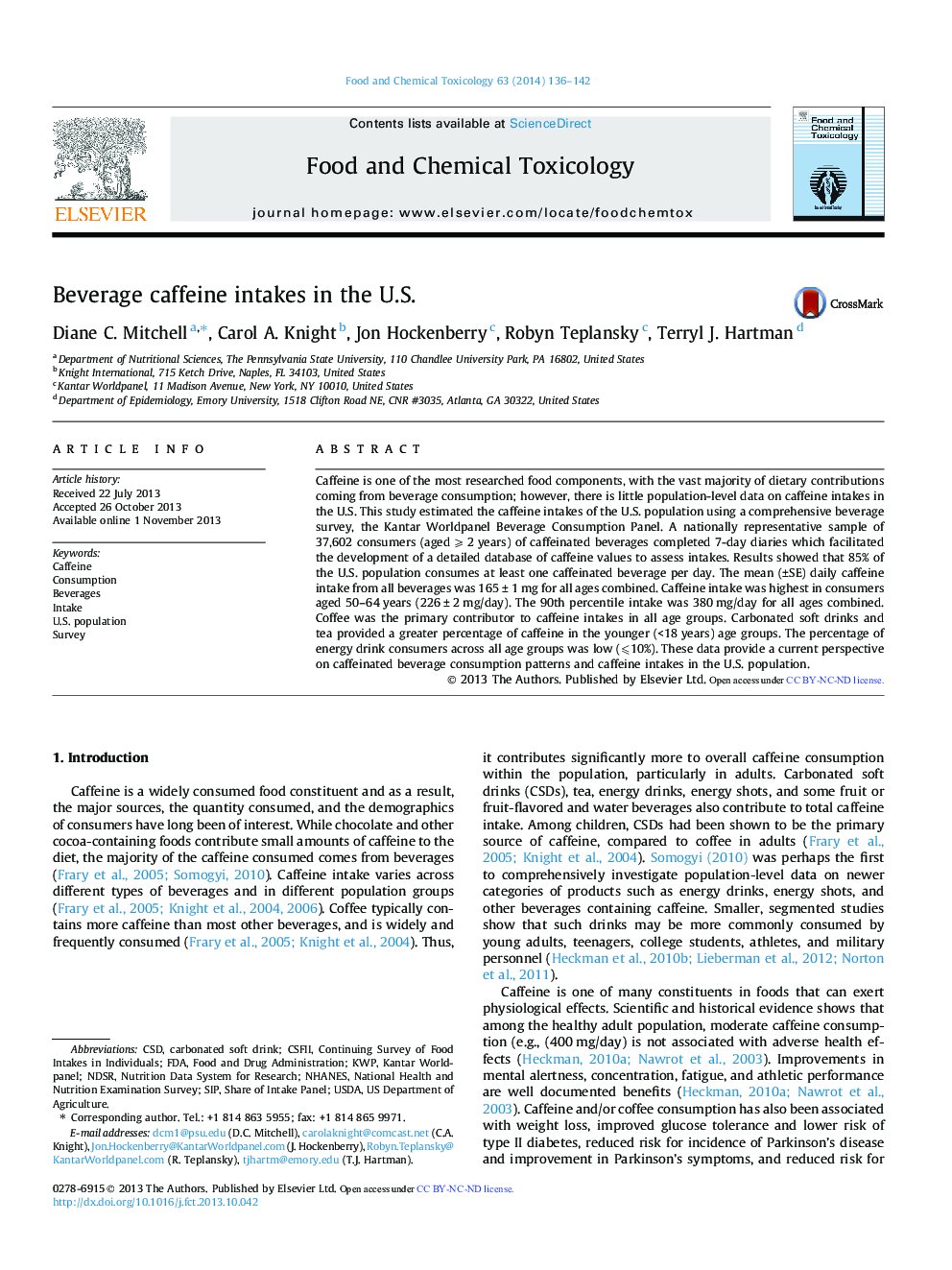| کد مقاله | کد نشریه | سال انتشار | مقاله انگلیسی | نسخه تمام متن |
|---|---|---|---|---|
| 5850832 | 1561781 | 2014 | 7 صفحه PDF | دانلود رایگان |
- Beverage caffeine intakes were estimated in a representative sample of U.S. consumers.
- Caffeine intakes from beverages are slightly higher than they were over a decade ago.
- 96% Of beverage caffeine consumed is from coffee, soft drinks and tea.
- In U.S. consumers, coffee remains the largest contributor to beverage caffeine intakes.
- Energy drinks, energy shots, and chocolate beverages contribute little to caffeine intakes.
Caffeine is one of the most researched food components, with the vast majority of dietary contributions coming from beverage consumption; however, there is little population-level data on caffeine intakes in the U.S. This study estimated the caffeine intakes of the U.S. population using a comprehensive beverage survey, the Kantar Worldpanel Beverage Consumption Panel. A nationally representative sample of 37,602 consumers (aged ⩾ 2 years) of caffeinated beverages completed 7-day diaries which facilitated the development of a detailed database of caffeine values to assess intakes. Results showed that 85% of the U.S. population consumes at least one caffeinated beverage per day. The mean (±SE) daily caffeine intake from all beverages was 165 ± 1 mg for all ages combined. Caffeine intake was highest in consumers aged 50-64 years (226 ± 2 mg/day). The 90th percentile intake was 380 mg/day for all ages combined. Coffee was the primary contributor to caffeine intakes in all age groups. Carbonated soft drinks and tea provided a greater percentage of caffeine in the younger (<18 years) age groups. The percentage of energy drink consumers across all age groups was low (⩽10%). These data provide a current perspective on caffeinated beverage consumption patterns and caffeine intakes in the U.S. population.
Journal: Food and Chemical Toxicology - Volume 63, January 2014, Pages 136-142
